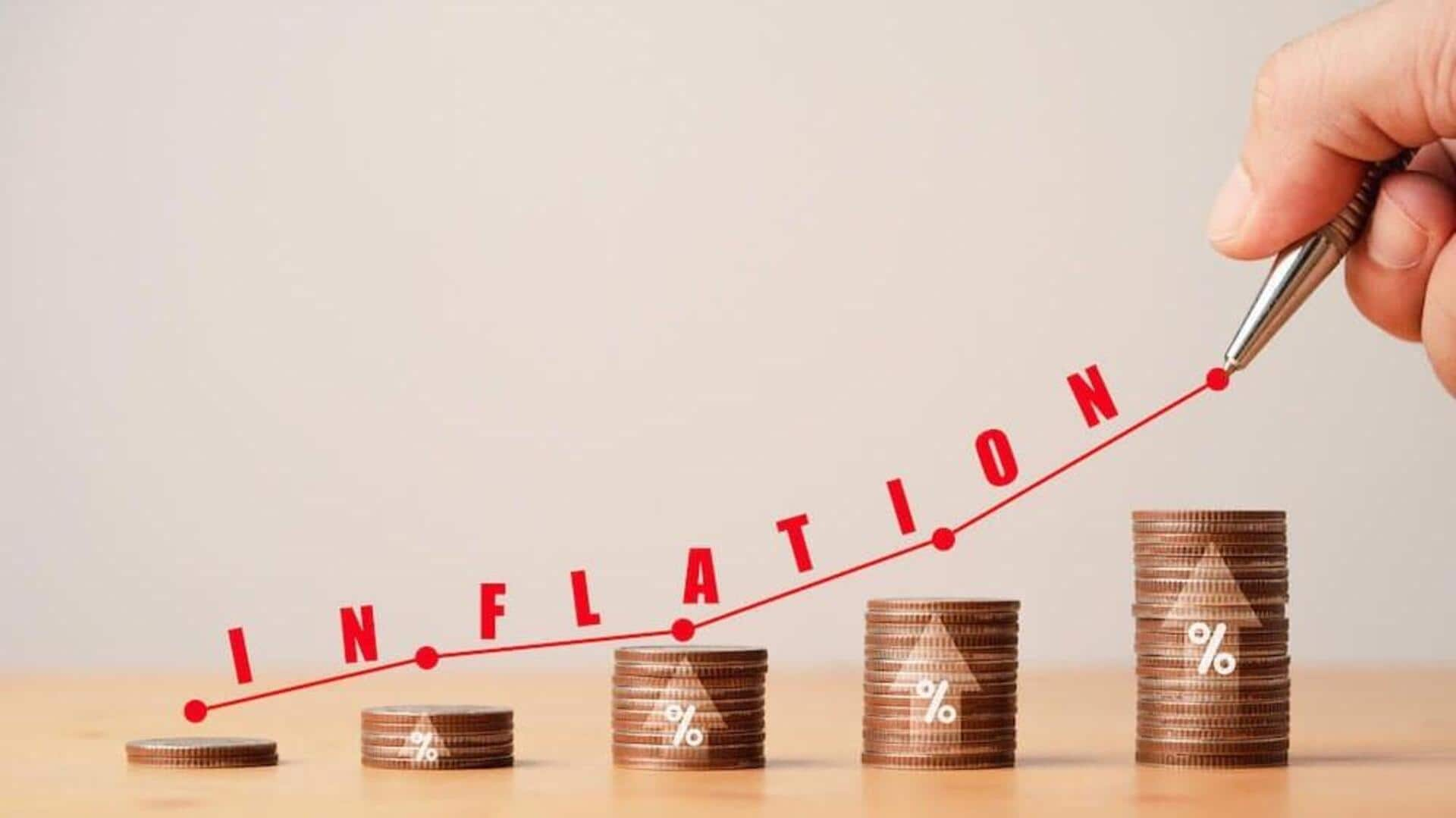Inflation eating into savings? Here are tips to steer clear
What's the story
Inflation is one of the most important economic factors that can affect your savings.
It is basically the rate at which the general level of prices for goods and services increases, diminishing purchasing power.
It is important to know how inflation can affect your savings if you want to make sound financial decisions.
In this story, we look at how inflation impacts savings.
Effect
Erosion of purchasing power
Inflation decreases the purchasing power of money over time.
For example, if you have ₹1,000 in savings today, its worth may decline in terms of what it can buy in the future due to rising prices.
Meaning, even if your nominal savings amount remains the same, its real value reduces as inflation rises.
Knowing this is important for planning long-term financial goals and keeping your savings valuable.
Interest rates
Interest rates and inflation
Interest rates often rise with inflation as central banks try to keep prices in check by making borrowing expensive.
But if the interest rate on your savings account doesn't keep up with inflation, you may witness a negative real return on your investments.
This is why it's important to look for investment options that offer returns above the inflation rate to preserve and grow your wealth over time.
Fixed income
Impact on fixed-income investments
Fixed-income investments like bonds are especially susceptible to inflationary pressures.
As inflation rises, the fixed interest payments from such investments lose purchasing power.
Investors may end up getting returns that are not enough to compensate for higher living expenses.
Diversifying investment portfolios with assets less sensitive to inflation can help mitigate this risk and protect overall financial health.
Tips
Strategies for inflation-proofing savings
To protect savings from inflation's impact, think about diversifying into assets like stocks or real estate, which tend to outstrip inflation over the long term.
Further, investing in Treasury Inflation-Protected Securities (TIPS) or other such instruments can insulate against rising prices by adjusting returns according to the changes in the Consumer Price Index (CPI).
Keeping abreast of economic trends and adjusting strategies accordingly can help maintain financial stability in a volatile economy.
